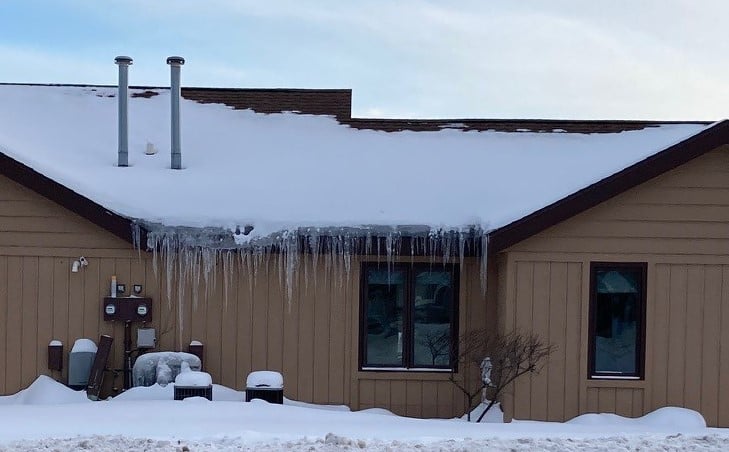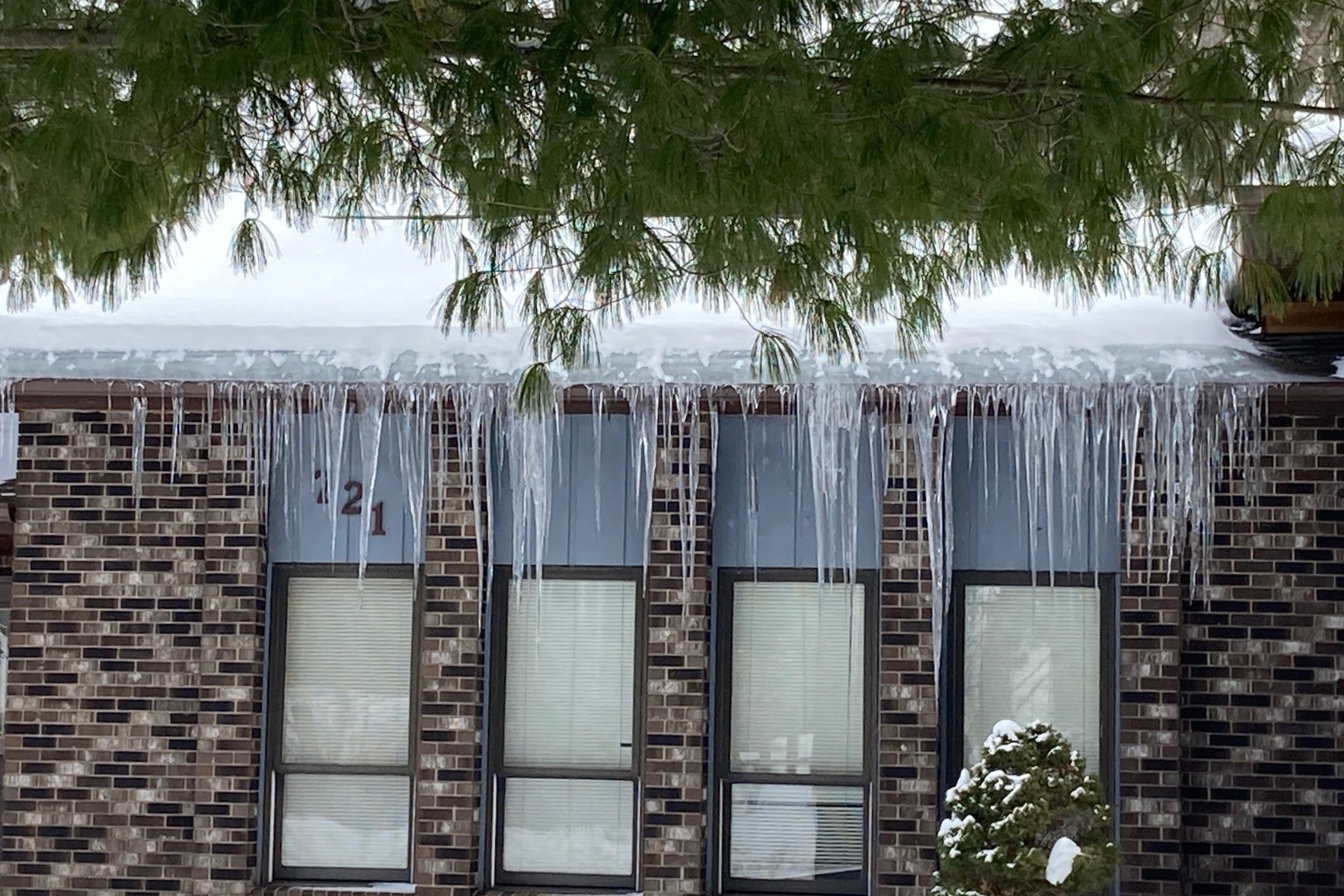Roof Damage from Melting Snow
Walworth County has had its fair share of snow and bitterly cold temperatures this winter, with snow depths currently in the 15-inch (and more) range throughout the area. With warmer weather on its way, homeowners should be aware of roof damage that can be caused by a cycle of thawing and freezing snow on roofs. Here are a few things to look out for:
Ice Damming and Icicle Formation
Ice dams are formed when snow begins to melt and drips down to the cooler edge of the roof, where it re-freezes as ice. This creates a dam of solid ice on the roof edge that prevents melted snow from draining away. This back up of water can seep under the shingles and potentially into the home. Common areas for snow to get stuck and cause problems are around the roof line, by a chimney, or in a valley.
What to do if you have ice damming?
Icicles can carefully be dislodged with a long-handled roof rake. The folks at This Old House have suggested a rather creative solution using....panty hose! Fill the leg with calcium chloride ice melter and lay it onto the roof so it crosses the ice dam and overhangs the gutter. It will eventually melt through the ice and create a channel for water to flow down into the gutters or off the roof.

Exacerbating Existing Problems
Existing problems like loosened roof flashing and dislodged shingles can be made worse with freezing and thawing of snow and ice damming. The heavy weight of ice can also pry open gutter seams and detach them from the fascia. If you see any signs of this damage after the snow has melted, it should be addressed to prevent further damage. Contact us at 262-723-7232 or fill out this form if you suspect you have roof damage or if you need help with ice damming.

